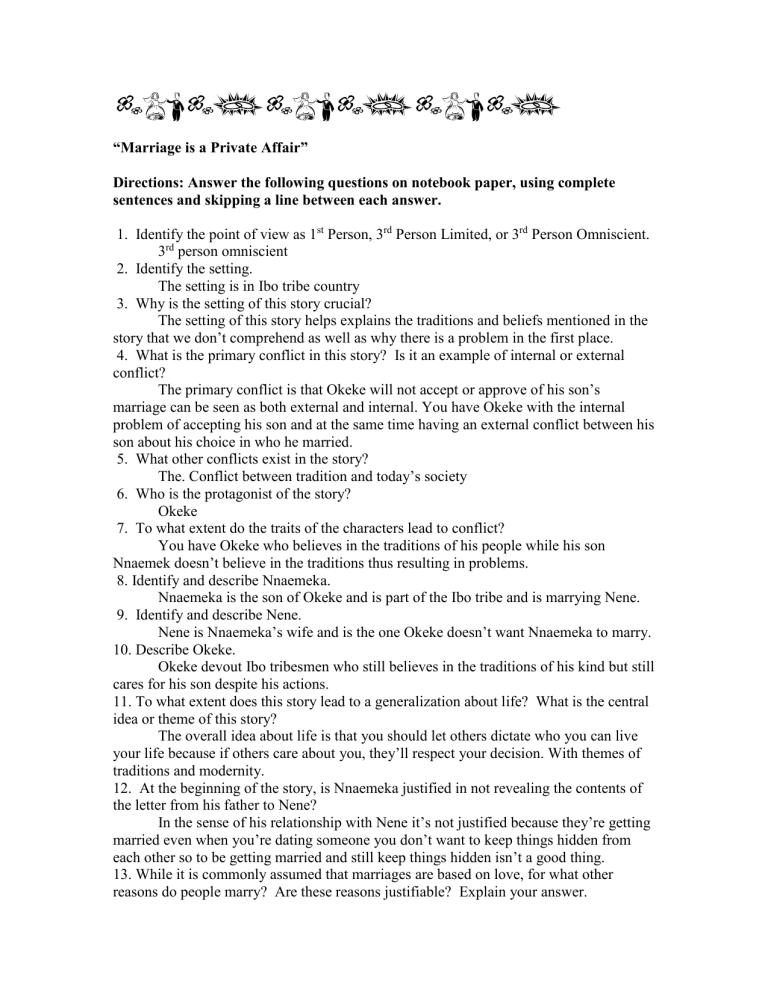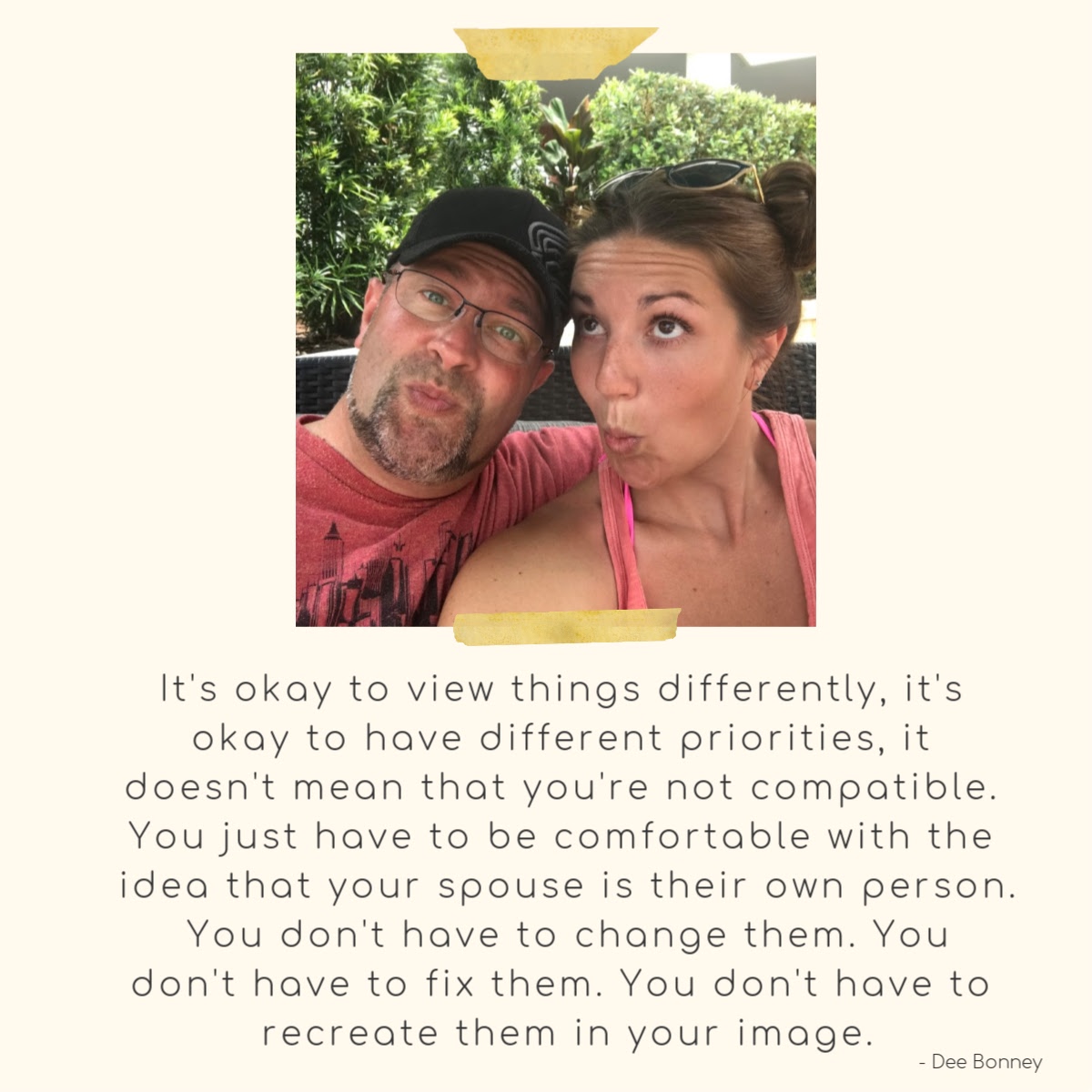Unveiling The Married But Needing It Private Society: Challenges And Considerations
Married But Needing It Private: Understanding the Discreet Society
A "married but needing it private society" refers to a group of individuals who are married but maintain a private or discreet lifestyle, often concealing their marital status from their social circles or the public. This concept has gained relevance in recent times due to various factors, including the rise of social media and the desire for privacy in personal relationships. One real-world example is the existence of private social groups or online forums dedicated to individuals who identify as "married but needing it private."
The significance of this phenomenon lies in its potential benefits for individuals seeking privacy, autonomy, and control over their personal lives. It allows individuals to navigate societal norms, cultural expectations, and familial pressures related to marriage while maintaining their desired level of privacy. Historically, the concept of "married but needing it private" has evolved alongside societal changes, legal developments, and evolving attitudes towards marriage and relationships.
This article delves into the intricacies of the "married but needing it private" society, exploring its relevance, benefits, historical context, and the challenges faced by individuals within this group. It examines the impact of social norms, legal frameworks, and personal choices on the decision to maintain a private marital status and discusses the implications for individuals, families, and society as a whole.
Married But Needing It Private Society
Understanding the complexities of "married but needing it private society" requires examining several essential aspects. These points shed light on the significance, motivations, and implications of maintaining a private marital status.
- Discreet Lifestyle: Maintaining privacy in personal relationships.
- Social Norms: Navigating societal expectations and cultural pressures.
- Autonomy & Control: Preserving individual freedom and decision-making.
- Legal Considerations: Understanding the legal implications of private marriage.
- Challenges: Addressing the difficulties and potential consequences.
Each of these points contributes to a deeper understanding of the "married but needing it private society." For instance, examining social norms reveals the influence of cultural expectations on marital status and the desire for privacy. Analyzing legal considerations highlights the importance of understanding the legal implications of private marriage, such as property rights and inheritance. Furthermore, exploring the challenges faced by individuals in this group provides insights into the complexities of maintaining a private marital status in a society that often emphasizes public displays of relationships.
These key points serve as a foundation for the main article, which delves into the intricate details and nuances of the "married but needing it private society." Through examples, connections, and relevance to the main article, these points lay the groundwork for a comprehensive examination of this phenomenon and its implications for individuals, families, and society as a whole.
Discreet Lifestyle
Within the "married but needing it private society," the concept of a discreet lifestyle plays a pivotal role. It encompasses the maintenance of privacy in personal relationships, particularly marital status. This lifestyle choice can be influenced by numerous factors, including cultural norms, social expectations, and personal preferences.
Cause and Effect: Discreet lifestyles and the "married but needing it private society" are closely intertwined. The desire for privacy can lead individuals to seek out communities or social groups that cater to their specific needs, thus contributing to the formation and growth of the "married but needing it private society." Conversely, the existence of this society can provide a supportive environment for individuals seeking to maintain a discreet lifestyle.
Components: A discreet lifestyle is an essential element of the "married but needing it private society." It is characterized by the conscious effort to maintain privacy in personal relationships, often involving the concealment of marital status from social circles or the public. This can include avoiding public displays of affection, using alternative last names, or maintaining separate social media profiles.
Examples: Real-life instances of discreet lifestyles within the "married but needing it private society" include individuals who choose to keep their marital status private due to cultural or religious reasons, those seeking to avoid societal pressures or expectations associated with marriage, and those seeking privacy to protect their careers or personal lives.
Applications: Understanding the connection between discreet lifestyles and the "married but needing it private society" has practical significance. It can help policymakers develop policies that respect the privacy rights of individuals, assist counselors and therapists in providing support to those navigating the complexities of private marriages, and inform researchers studying the evolving nature of relationships and social norms.
In conclusion, the discreet lifestyle prevalent in the "married but needing it private society" is a complex phenomenon influenced by various factors. It is characterized by the conscious effort to maintain privacy in personal relationships, often involving the concealment of marital status. Understanding this connection can inform policies, support services, and research efforts related to this growing societal trend.
Social Norms
Within the "married but needing it private society," individuals navigate societal expectations and cultural pressures that influence their decision to maintain a private marital status. These social norms can be deeply ingrained and exert a powerful influence on personal choices and behaviors.
- Cultural Expectations: Societal beliefs and values surrounding marriage, family, and privacy can shape individual decisions. In some cultures, public displays of affection or open discussions about marital status are expected, while in others, privacy and discretion are highly valued.
- Familial Pressures: Family members may hold specific expectations regarding marriage, such as the desire for grandchildren or public acknowledgment of the relationship. These pressures can create internal conflicts for individuals seeking privacy in their marital status.
- Social Stigma: In some societies, maintaining a private marital status may carry a social stigma, leading to feelings of shame, isolation, or judgment from others. This stigma can be particularly pronounced in communities where marriage is seen as a prerequisite for social acceptance.
- Legal Implications: Legal frameworks and policies related to marriage can also influence the decision to maintain a private marital status. For example, laws governing property rights, inheritance, and child custody may differ for married and unmarried couples, creating practical considerations for individuals seeking privacy.
The interplay between social norms and the "married but needing it private society" is complex and multifaceted. Understanding these social norms is crucial for comprehending the motivations and experiences of individuals within this group. Furthermore, it highlights the need for policies and social attitudes that respect the privacy rights of individuals and recognize the diverse ways in which relationships can exist and be valued.
Autonomy & Control
Within the "married but needing it private society," autonomy and control are paramount, as individuals seek to preserve their freedom and decision-making power in various aspects of their lives.
- Privacy in Decision-Making: Individuals maintain the freedom to make personal choices and decisions without external pressures or influences from family, society, or public opinion.
- Control Over Information: Individuals have control over the information they share about their marital status, allowing them to protect their privacy and maintain boundaries.
- Avoiding Societal Expectations: By keeping their marital status private, individuals can avoid societal expectations and norms associated with marriage, such as the pressure to have children or conform to traditional gender roles.
- Pursuit of Individual Goals: Maintaining a private marital status can allow individuals to focus on their personal goals, career aspirations, or other pursuits without the constraints or limitations that may come with public knowledge of their marital status.
These aspects of autonomy and control empower individuals to chart their own course in life, free from the scrutiny or judgment of others. It also allows them to navigate the complexities of modern relationships and balance their personal and private lives in a way that aligns with their values and aspirations. Understanding the significance of autonomy and control within the "married but needing it private society" sheds light on the motivations and experiences of individuals who choose to maintain privacy in their marital status.
Legal Considerations
Navigating the legal implications of private marriage is a crucial aspect for individuals within the "married but needing it private society." These considerations encompass various legal frameworks, rights, and responsibilities associated with marriage, both formally recognized and those pertaining to common-law marriages.
- Marital Recognition: Legal recognition of private marriages can vary across jurisdictions, affecting rights and responsibilities related to property ownership, inheritance, taxation, and spousal support.
- Property Rights: Private marriages may impact property rights, including ownership, division, and inheritance. Understanding legal protections and potential complications is essential to safeguard individual interests.
- Common-Law Marriages: Depending on the jurisdiction, common-law marriages, established through cohabitation and mutual consent without formal ceremonies, may have legal implications. These can include rights and responsibilities similar to formally recognized marriages.
- Legal Protections: Private marriages may limit access to certain legal protections and benefits available to formally recognized marriages, such as spousal privileges, rights to make medical decisions, or immigration benefits.
Understanding these legal considerations is crucial for individuals seeking privacy in their marital status. It enables them to navigate complex legal frameworks, protect their rights and interests, and make informed decisions regarding their personal and financial affairs. Legal considerations within the "married but needing it private society" highlight the interplay between individual privacy, societal norms, and the legal implications of marriage.
Challenges
Within the "married but needing it private society," individuals face unique challenges and potential consequences as they navigate their private marital status. Understanding these challenges is essential for gaining a comprehensive perspective on this growing societal trend.
Cause and Effect: The challenges faced by individuals in the "married but needing it private society" can both cause and result from their decision to maintain privacy in their marital status. For instance, the desire for privacy may lead to feelings of isolation, loneliness, and a lack of social support. Conversely, these challenges can reinforce the need for privacy, creating a cycle that perpetuates the private marital status.
Components: Challenges are an inherent element of the "married but needing it private society." They are intricately linked to the complexities of maintaining a private marital status in a society that often emphasizes public displays of relationships. These challenges include societal pressures, legal complexities, and the potential for misunderstandings and conflicts.
Examples: Real-life instances of challenges faced by individuals in the "married but needing it private society" abound. These include dealing with societal stigma, navigating legal hurdles related to property rights and inheritance, and managing the emotional toll of maintaining a private marital status. Understanding these challenges humanizes the experiences of individuals within this group and highlights the need for supportive policies and social attitudes.
Applications: The practical significance of understanding challenges in the "married but needing it private society" lies in its implications for policymakers, counselors, and society as a whole. Recognizing these challenges can inform the development of policies that respect the privacy rights of individuals, support services that cater to their unique needs, and social attitudes that promote inclusivity and understanding.
In conclusion, the challenges faced by individuals in the "married but needing it private society" are multifaceted and interconnected. They both stem from and contribute to the decision to maintain a private marital status. Understanding these challenges is crucial for developing supportive policies, services, and social attitudes that respect the privacy rights and well-being of individuals within this growing societal trend.
Frequently Asked Questions
This FAQ section aims to address common questions and clarify aspects related to the "married but needing it private society." It provides concise answers to anticipated reader queries, offering insights into the motivations, challenges, and implications of maintaining a private marital status.
Question 1: Why do individuals choose to maintain a private marital status?
Answer: Individuals may opt for a private marital status due to various reasons, including the desire for privacy, autonomy in decision-making, avoidance of societal pressures or expectations, cultural norms, and legal considerations.
Question 2: What are the challenges faced by individuals in a married but needing it private society?
Answer: Challenges may include societal stigma, legal complexities related to property rights and inheritance, difficulties in accessing certain benefits or protections available to formally recognized marriages, and the potential for misunderstandings and conflicts.
Question 3: How does a private marital status impact legal rights and responsibilities?
Answer: Legal recognition of private marriages can vary across jurisdictions, affecting rights and responsibilities related to property ownership, inheritance, taxation, spousal support, and access to legal protections and benefits.
Question 4: What are the implications of a private marital status for family dynamics and relationships?
Answer: Maintaining a private marital status may influence family dynamics, communication patterns, and relationships with extended family members. It can also impact decisions related to child custody, visitation rights, and financial support.
Question 5: How does a private marital status affect social interactions and community involvement?
Answer: Individuals in a married but needing it private society may face social isolation, limited social support networks, and difficulties in navigating social situations due to the need to conceal their marital status.
Question 6: What are the potential consequences of maintaining a private marital status in terms of emotional well-being and mental health?
Answer: Concealing a marital status can lead to feelings of loneliness, anxiety, depression, and a lack of fulfillment. It can also strain relationships with partners, family members, and friends.
In summary, the FAQs have highlighted the complex interplay between individual privacy, societal norms, legal frameworks, and the challenges faced by individuals in the "married but needing it private society." These insights underscore the need for further exploration and discussion on the implications of private marital status for individuals, families, and society as a whole.
The next section delves deeper into the societal attitudes and cultural factors that shape the experiences of individuals in the "married but needing it private society," examining how these factors influence the decision to maintain a private marital status and its consequences.
Tips for Navigating a Private Marital Status
This section provides practical tips and strategies for individuals navigating a private marital status. By implementing these suggestions, individuals can better manage the challenges and potential consequences associated with maintaining privacy in their marital relationship.
Tip 1: Open Communication: Maintain open and honest communication with your spouse about your decision to keep your marital status private. Discuss your reasons, concerns, and expectations to foster understanding and support within the relationship.
Tip 2: Legal Considerations: Seek legal advice to understand the legal implications of a private marriage in your jurisdiction. This includes property rights, inheritance laws, and any potential legal protections or challenges you may face.
Tip 3: Setting Boundaries: Establish clear boundaries with family, friends, and acquaintances regarding your desire for privacy. Politely decline to disclose your marital status or provide evasive answers if necessary.
Tip 4: Maintaining Privacy Online: Be mindful of your online presence and social media activity. Use privacy settings to control who can see your posts, photos, and personal information.
Tip 5: Emotional Well-being: Prioritize your emotional well-being and mental health. Seek support from trusted friends, family members, or therapists if you experience feelings of isolation, loneliness, or anxiety due to your private marital status.
Tip 6: Legal Documentation: Consider creating legal documents such as a prenuptial agreement or cohabitation agreement to protect your assets and interests in case of a separation or dissolution of the relationship.
Tip 7: Social Support: Seek out support groups or online communities specifically designed for individuals in private marital relationships. These groups can provide a sense of belonging and shared experiences.
By implementing these tips, individuals can navigate the complexities of a private marital status with greater confidence, clarity, and emotional well-being. Maintaining privacy in a relationship requires careful consideration, open communication, and a proactive approach to managing legal, social, and emotional aspects.
As we conclude our exploration of the 'married but needing it private society,' the next section delves into the societal attitudes and cultural factors that shape the experiences of individuals in this growing trend. Understanding these factors provides a deeper context for the challenges, motivations, and consequences associated with maintaining a private marital status.
Conclusion
Our exploration of the "married but needing it private society" reveals a complex interplay between individual privacy, societal norms, and legal frameworks. Key findings suggest that individuals in this growing trend navigate unique challenges, including societal pressures, legal complexities, and the potential for misunderstandings and conflicts.
The decision to maintain a private marital status often stems from the desire for autonomy, control over personal information, and the avoidance of societal expectations. However, this choice can also lead to feelings of isolation, limited social support, and difficulties in accessing certain legal protections and benefits available to formally recognized marriages.
The "married but needing it private society" highlights the evolving nature of relationships and the diverse ways in which individuals seek to define and maintain their personal lives. It prompts us to consider the societal attitudes and cultural factors that shape our understanding of marriage and privacy, and the need for policies and social support systems that respect individual choices and protect the well-being of all individuals, regardless of their marital status.
As we look to the future, it is essential to continue exploring the dynamics of private marital relationships and their implications for individuals, families, and society as a whole. This ongoing dialogue can pave the way for greater understanding, acceptance, and support for those navigating the complexities of a private marital status.
Unraveling The Mystery: What Happened To Velicity Von?
Clara Trinity Raising The Funds: A Path To Global Impact
Unveiling Layla London's Journey: Where Is She Now?

Choosing a Marriage Retreat Group or Private?

Marriage is a private affair Four Levels and Question Answers

Private Marriage, Promises, and Guarantees YouTube

Marriage is a Private Affair questions

Needing Your Spouse Is Ruining Your Marriage Blog
ncG1vNJzZmiwlaO5uXrApqpsZpSetKrAwKWmnJ2Ro8CxrcKeqmebn6J8rq3Rq6CenF2XwrV5zZ6cnaGenHqqwIypqaKukamybr%2FOnKCerKljtbW5yw%3D%3D